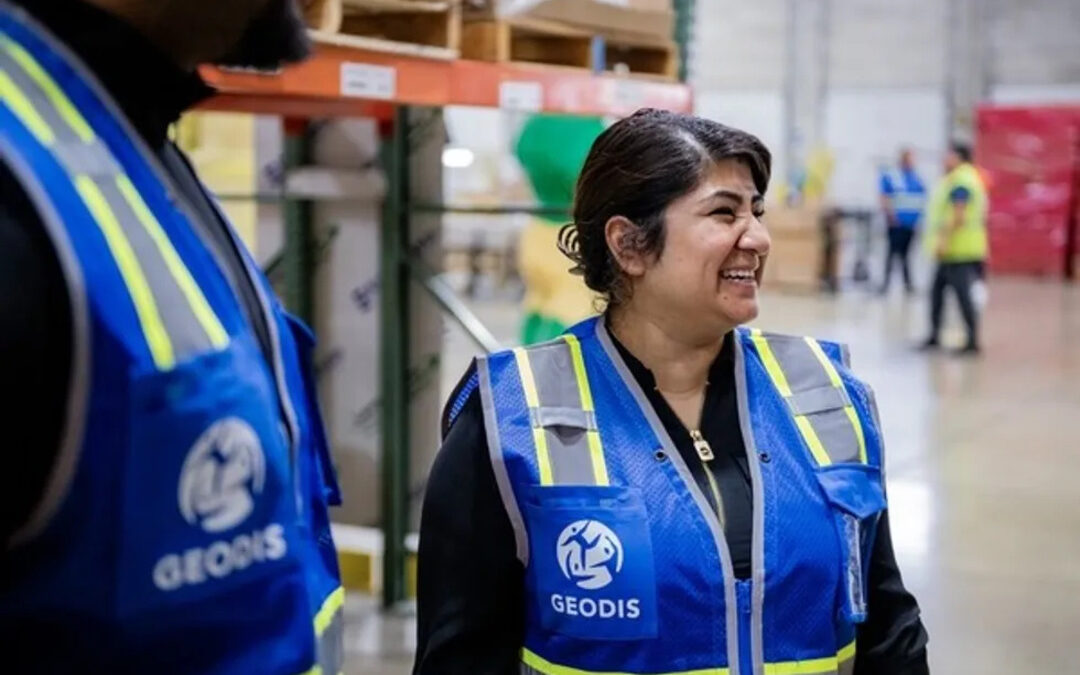Geodis Fuels Ambition 2027 Growth Plan with Science-Based Climate Goals
Logistics giant Geodis sharpens global logistics strategy with bold climate targets, digital investment and ESG-driven performance goals.
French logistics giant Geodis has made sustainability the core of its growth strategy through its Ambition 2027 plan, reinforcing its climate targets validated by the Science-Based Targets initiative.
According to its 2024 Activity and Sustainability Report released on Tuesday, the plan outlines accelerating financial and operational performance, delivering value-added logistics solutions and embedding social and environmental responsibility across operations.
Under Ambition 2027, Geodis has committed to a 42 percent reduction in Scope 1 and 2 greenhouse gas emissions, and a 25 percent cut in Scope 3 transport-related emissions between 2022 and 2030.
Scope 1 is the type of greenhouse gas emissions a company makes directly, such as running furnaces or cars. Scope 2 is what a company is indirectly responsible for, such as what is needed to provide electricity or heating.
Scope 3 is all-encompassing for a company’s products — not just what the company creates to manufacture the products, but also the emissions released when the products are used.
Science-Based Climate Commitments
The trajectory, officially approved by SBTi, reflects Geodis’ alignment with the Paris Agreement.
In 2024, progress included:
- A 9 percent drop in Scope 1 and 2 emissions since 2022.
- A 1 percent decrease in Scope 3 emissions intensity for non-air transport.
- A 5 percent increase in Scope 3 air transport emissions, highlighting sector-wide challenges.
“With our Ambition 2027 plan, we place information, performance and responsibility at the heart of our strategy,” said Geodis CEO Marie-Christine Lombard in a statement. “We are fully committed to meeting these targets and actively contributing to the fight against global warming,” she added.
Greener Deliveries and Low-Carbon Infrastructure
Geodis has expanded its low-emission delivery fleet to 463 alternative energy vehicles and now operates sustainable urban logistics in 40 city centers worldwide, including Shanghai and multiple cities in France. It aims to reach 100 cities by the end of 2025.
The report further noted that waste recovery increased to 76 percent and diesel consumption decreased by 7 percent over the two years, reaching 60 million liters.
The company also conducted climate risk assessments at its highest exposure sites and continues to optimize building energy use and multimodal freight networks.
Digital Innovation Powers Logistics Transformation
The report stated that the logistics giant is investing 3.5 percent of its annual revenue into digital transformation, leveraging artificial intelligence and automation to improve service, reduce emissions and cut costs.
Highlights from 2024 include:
- Machine learning algorithms for real-time delivery route optimization.
- A digital twin solution in Germany, reducing last-minute truck use by 25 percent and cross-docking by 33 percent.
- Drone-based stock audits in the U.S., cutting inventory time by 50 percent.
The company now operates 80 automated warehouse sites globally and has launched a secure internal ChatGPT to support employee productivity and AI literacy.
Customer Trust and Operational Excellence
Geodis reported a customer Net Promoter Score of +36 in 2024, reflecting strong client satisfaction across its four business lines: freight forwarding, contract logistics, distribution and express, and the European Road Network.
The company serves 91,000 clients across 166 countries and employs nearly 50,000 people. “Our mission is clear: serving people by delivering their goods worldwide with innovative, sustainable, and ethical logistics,” Lombard said.
Corporate Governance Aligns Incentives with ESG
Governance structures now link 25 percent of executive variable compensation to non-financial key performance indicators such as emissions, gender diversity and NPS. The company’s management board comprises 18 members—28 percent of whom are women—representing four nationalities.
Geodis’ executive vice-president of sustainability, Virginie Delcroix, reports monthly to the management board and annually to the supervisory board, ensuring that CSR targets are fully integrated into corporate decision-making.
Supply Chain Ethics and Stakeholder Engagement
The company increased the share of strategic suppliers assessed by EcoVadis to 63 percent, up from 50 percent in 2022. Its updated Business Partner Code of Conduct reinforces expectations around human rights, sustainability and fair business practices.
In 2024, 88 percent of customers reported being well-informed about Geodis’ CSR commitments, and 70 percent viewed the company as a sustainability leader in its field.
With its Ambition 2027 strategy, Geodis is positioning itself not only as a logistics operator but as a sustainability partner for global supply chains. “Innovation, responsibility, and ethical practices are the engine of our future,” said Lombard.
Nirmal Menon
Related posts

Subscribe
Error: Contact form not found.


